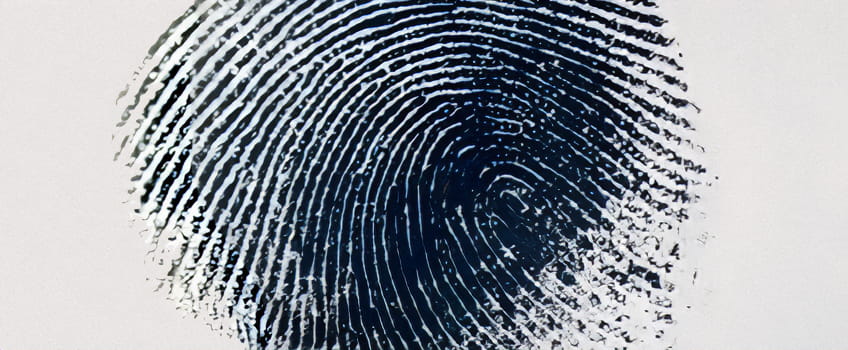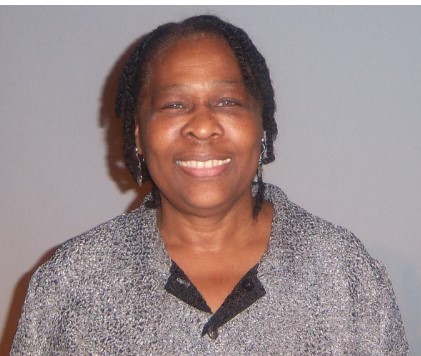Victimology and Victim Services Minor

Outside of a courthouse

a fingerprint on coarse paper

the scales of justice
Victimology is a multidisciplinary branch of criminology, based on research in criminal justice, psychology, public health, anthropology, history, and economics.
It examines the nature of the victimization process; the relationships between victims and offenders; the emotional, physical, and economic impact of crimes on victims; and the interactions between victims and other social groups and institutions, including the family and school. The field of victimology includes victim profiling, forensic victimology, and the scientific study of victims that focuses on their lifestyles, circumstances, the events leading up to the crime, and the nature of their victimization.
Program Overview
In general, the field of victimology offers evidence-based practices for understanding victim-offender dynamics, victim services, and the prevention of victimization. The minor provides students with a coherent set of interdisciplinary courses, giving them broad competency in victimology and victim services, while at the same time introducing them to specialized areas.
The minor enhances students' ability to work with a variety of victims, such as women, men, children, the elderly, and the LGBTQ population. The minor also provides students with opportunities to conduct research, learn from guest speakers, and engage with the community.
Program Coordinator

Guia Calicdan-Apostle, DSW
Associate Professor of Social Work
609-626-3820
H254
guia.calicdan-apostle@stockton.edu
 Program Objectives
Program Objectives
Once students have completed the minor, they will have:
- Acquired informed and balanced knowledge about victims, victimization, and victim services;
- Demonstrated proficiency in a range of theoretical perspectives in victimology;
- Understood the impact of victimization on various populations of victims;
- Developed an understanding of victims’ rights and the criminal justice response to victims and victimization.
Curriculum
The Victimology and Victim Services minor is awarded to matriculated students who have satisfactorily completed 20 credits (five courses) as described below.
Students will take a mandatory introductory course that will examine the history of victimology, basic concepts and consequences of victimization, offender-victim relationships, and the victim’s role in the criminal justice system. Students will then select three electives: one course from each of two categories (Category One: Types of Victimization and Victims and Category Two: Contemporary Victim-Related Issues), and a third course from either category.
![]()
Curriculum Worksheet
Students will complete the minor with a capstone course -- a senior-level interdisciplinary course that focuses on victim services, which includes victim assistance programs, victim-witness services, victim-offender programs, victim rights, victim advocacy, and national organizations for victims. Note that an alternative course or experience may take the place of the required capstone course with permission of the minor coordinator.
At least 8 credits required for the minor must be at 3000 level or above.
Mandatory Introductory Course (4 credits):
CRIM 2327 Introduction to Victimology
Elective Courses (12 credits):
One course from each of the following two categories, and a third course from either
category:
Category One: Types of Victimization and Victims (4 credits):
CRIM or GERO 2160 Aging, Crime & Criminal Justice
CRIM 2235 Violence in Correctional Facilities
CRIM 2236 Violence Against Women
CRIM 2328 Perspectives in Victimology
CRIM 3110 Gangs in America
CRIM 3625 Sex & Violence
GAH 2113 Non-Jewish Victims of Nazis
GAH 2119 History & Memory of Nazi Era
GEN 2308 Children of the Holocaust
GIS 3205 Battered Children
GIS 3600 Holocaust & Genocide
GIS 3658 Women & Genocide
GIS 3667 Families in Genocide
GSS 1071 or 2321 Peace & Conflict Studies
GSS 2213 Sexuality & Crime
GSS 2328 Native Americans & Genocide
GSS 2451 South Africa Now
GSS 2607 Violence & Victims
GSS 2648 Sexual Assault: Victims & Perpetrators
GSS 3173 Sexualized Violence in Genocide & Conflict
GSS 3244 Children & Crime
GSS 3263 Pseudoscience and Eugenics
GSS 3278 Study Tour: Holocaust
GSS 3640 Sexualty/Crime/Criminal Justice
PSYC 3618 Psychology of Child Witnesses
Category Two: Contemporary Victim-Related Issues (4 credits):
ANTH 2245 Race, Ethnicity & Immigration
GAH 1037 Philosophy of the Other
GAH 2334 Representing Race
GAH 3206 Race & U.S. Culture
GAH 2372 Cultural Stereotypes in Media
GSS 2264 Race & Islam in the U.S
GSS 2310 Sex Discrimination & the Law
GSS 3234 Human Rights in Global Perspective
HLTH 2301 Cultural Diversity in Healthcare
POLS 3225 Civil Liberties
PSYC 2201 Adolescence
PSYC 3145 Sex Crimes
SOCY 2210 Sociology & Family Law
[SOCY 2213 Minority-Majority Relations OR SOWK 2504 Race, Ethnicity, Diversity]
SOCY 2355 Black Lives
SOCY 3630 Studies in Family Relations
Either Category One or Two (4 credits)
One course from category One or Two
Mandatory Capstone Course (4 credits):
GIS 4669 Victim Services
*Alternative may be allowed with permission from the minor coordinator
Victimology Minor Faculty

Robert J. Barney

Jess Bonnan-White

Deeanna Button

Guia Calicdan-Apostle

Joshua D. Duntley

Michael R. Hayse

Marion Hussong

Janice O. Joseph

Katherine Kafonek

Nazia Kazi

Manish Madan

Sara Martino

Patricia Reid-Merritt

Kimberley R. Schanz

Allison N. Sinanan

Connie M. Tang

Judith Vogel

Kaite Yang
PROFESSORS EMERITI

Sonia V. Gonsalves

Melaku Lakew

Franklin O. Smith
Admission to the Minor
The Victimology and Victim Services Minor is open to students from all majors. Interested students should inform their preceptor of their interest and complete the Declaration of Major/Minor Form, available through Academic Advising to officially declare the minor. The declaration form must be signed by the minor coordinator.
Due to the interdisciplinary nature of the curriculum, many of the courses may be applied toward program, cognate, or at-some-distance requirements. Planning early, particularly in programs with highly structured requirements, can help students complete the minor without taking additional courses beyond the basic 128 credit hours needed for graduation.
Career Opportunities
The Victimology and Victim Services Minor will prepare students for entry into a wide variety of positions in fields such as:
- Criminal justice
- Social work
- Counseling
- Gerontology
- Nursing
It can be especially useful for those who interact directly with victims, their families, and their communities, such as police officers and other first responders, probation officers, counselors, social workers, and medical emergency personnel.

